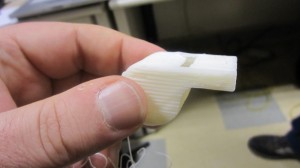The headline in today’s USAToday reads: “Holder – No Bank Is To Big To Jail.” The story behind the headline addresses the Justice Department’s prosecution of Credit Suisse for allegedly helping Americans evade taxes by opening secret Swiss bank accounts. Unfortunately Holder’s words are empty.
You can’t put a bank in jail. The feds can close down a bank but Justice Department officials publicly admit that they don’t want to jeopardize the economy nor do they want to see Credit Suisse close its doors.
The tag line “Too Big To Fail, To Big To Jail” stems from the economic meltdown of 2008. Many of the largest banks misrepresented the credit worthiness of mortgage pools held or offered by the bank. Mortgage underwriting standards had become sloppy as well. In the end, American taxpayers paid tens of billions of dollars to bail out the banks and keep the economy afloat – barely afloat.
Since that time, only one banker from one of the so-called “too big to fail” banks was prosecuted. Kareem Serageldin received a 30 month sentence last year for conspiracy to falsify records. Ironically, Serageldin worked for Credit Suisse.
You can’t put a bank in jail. But bankers are another story. The Justice Department gets high marks for locking up bankers that helped Americans evade taxes but low marks for prosecuting those behind the economic meltdown. As noted above, there has been just one prosecution involving a big bank in the 6 years since the economy collapsed.
The Justice Department doesn’t get all black marks, however. Besides aggressively pursuing bankers who helped people open unreported foreign accounts, DOJ has had unprecedented success in civil prosecutions and fines against America’s biggest banks. No one from Bank of America, Lehman Brothers or Countrywide may have gone to jail but that banks have paid billions and billions in fines and penalties.
The Justice Department also gets high marks for working with whistleblowers and aggressively prosecuting cases under the False Claims Act and FIRREA (the Financial Institutions Reform Recovery and Enforcement Act). Those laws pay whistleblowers a percentage of what the government collects. Attorney General Holder has figured out that there are many people within the financial industry willing to cooperate and help stamp out fraud. By using whistleblower laws, the Justice Department has seen record numbers of whistleblowers come forward.
We understand that it is easy to take things out of context when quoting soundbites. Newspaper editors do it all the time. But the Attorney General should realize that as well and be more careful about saying “no bank is too big to jail.”
Our bottom line? Justice has switched from prosecution of bankers to civil enforcement and deferred prosecution agreements against banks. During the savings and loan crisis, the feds prosecuted over 1000 bankers. Today the department has collected tens of billions in fines. Which strategy is best? Time will tell.
—
The law firm of Mahany & Ertl represents whistleblowers in False Claims Act and FIRREA cases. We concentrate in the financial services industry and also represent financial sector workers in class actions and Fair Labor Standards Act claims against banks and mortgage companies. The author, attorney Brian Mahany, can be reached at or by telephone at (direct).
Whistleblower photo courtesy of Dave Winer – scriptingnews


